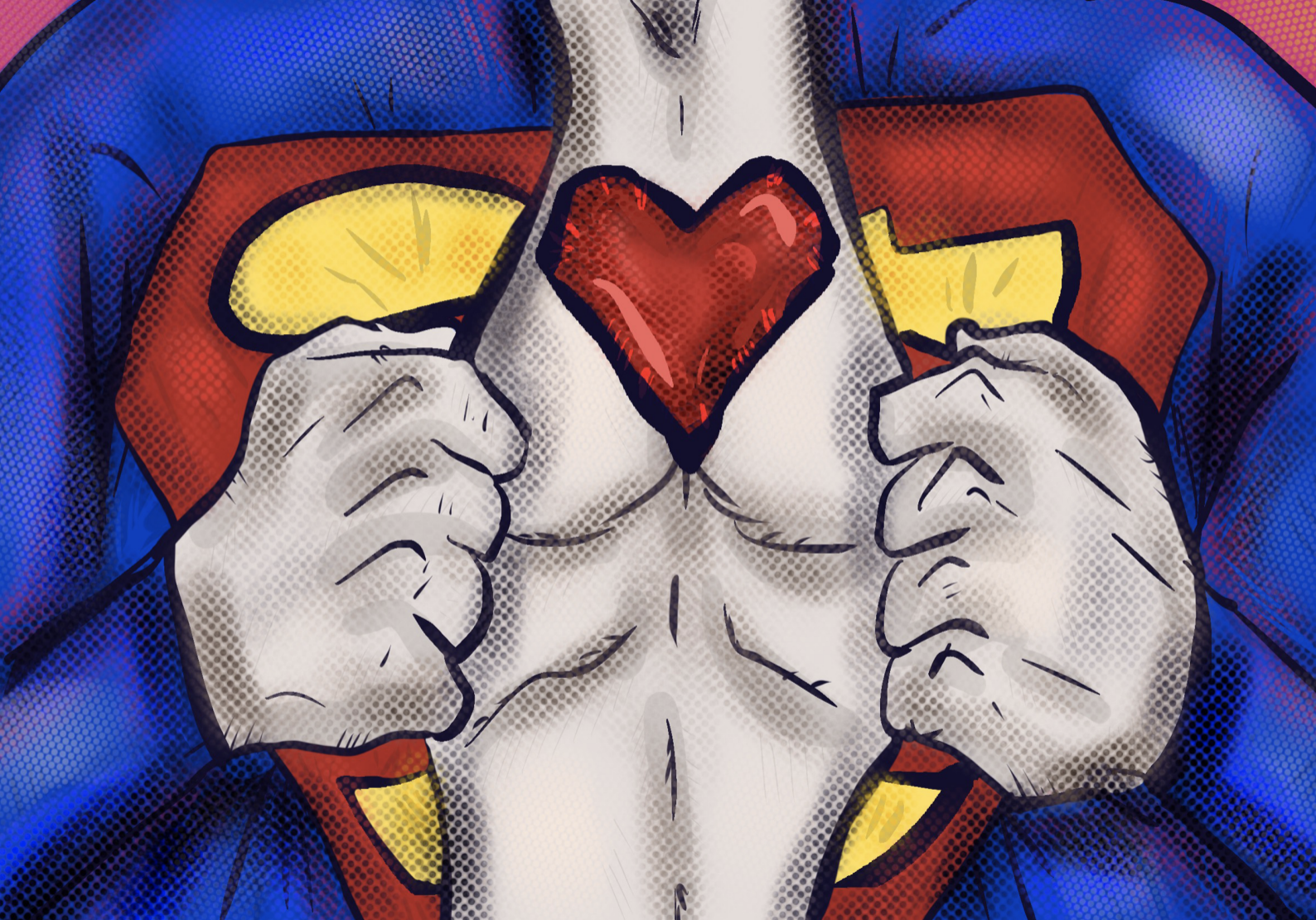Superman Comes Out
On October 11, National Coming Out Day, Superman soared out of the closet.
This is not Clark Kent, the Superman who has heroically captivated comic book fans for generations but his son, Jon Kent. With his Clark off-world, Jon now shares his father’s title and serves as Earth’s Man of Steel in Superman: Son of Kal-El, with writer Tom Taylor and artist John Timms at the helm. Jon is similar to his father in almost every way—he’s faster than a speeding bullet and able to leap tall buildings in a single bound. But what stands out about Jon, what shook the world of popular culture, is that he is bisexual.
Jon’s sexuality represents a polarizing shift in the comic book industry. It is rare to see a queer character in the foreground, much less as the lead in their own series. While this is not a problem exclusive to comic books, this medium is an easily accessible avenue for cultural awareness. Superheroes are reflections of societal values. They may fly over skyscrapers or shoot lasers from their eyes, but what they fight for is universal.
Art by Natasha Arnowitz
This is the very appeal of superheroes to Creative Writing student Ella Fishman (‘24). Ella is not a devout comic fan, but she finds herself invested in Jon’s story. Describing her attachment to Jon and heroes like him, Ella says, “all of the stories are rooted in very human values. They’re supernatural or they’re superheroes or inhuman in some way, but the stories themselves or the characters themselves are deeply human. And I think that’s why it’s so important that marginalized identities are represented within the figure of ‘superhero.’”
Jon’s greatest power is not flight or speed or strength but the power of representation: his ability for queer individuals to see themselves in him. In a space where LGBTQIA representation has been scarce, to be represented by a figure as culturally prominent as Superman is an invaluable step forward.
Still, every step forward in the effort for equal representation is met with resistance. Superman is known for fighting criminals and aliens, but when it was announced he was bisexual, he faced off against bigots, too. When Jon came out, both the character and the creative team behind Son of Kal-El received death threats. There were also claims that Jon’s bisexuality was a cash grab, that it ruined so-called fans’ childhoods, and that he was too small of a character for any substantial changes to be enacted in terms of representation. After all, it’s not like he’s Superman…
As a bisexual comic book fanatic, VMA student Aisling McDermott (‘24) was both ecstatic by Jon’s coming out and disheartened by the violent responses which ensued. Describing the root of this animosity, Aisling says these people “don’t want us to exist in this world and so in that world where we don’t exist, they want to keep it that way.” Explaining how their reactions were mistargeted, Aisling continued, “I don’t understand why people get so mad about it because it shouldn’t change the character, just like if someone comes out to you it shouldn’t change how you feel about them. They’re still the same person.”
The comic book world Aisling referred to is changing, with Jon at the forefront. His bisexuality signifies a progressive shift in the industry as a whole. Queer identity matters, and in the midst of saving Earth from intergalactic threats, Jon Kent is here to defend it. And while Jon may be the same person, he is an unprecedented kind of hero. He demonstrates that not only does good prevail against evil, but love prevails against hatred.
Though he shares his father’s name, Jon has given the “Superman” title a new meaning. WLP student Kate Rispoli (‘24) describes him as a refreshing hero, a “Superman-next-generation.” She says, “obviously you can’t beat the classic, but the classic is gonna fade away. Time is gonna pass and Superman is always gonna be Superman, it’s always gonna be Clark Kent, but then it’ll be like, ‘Ya but I haven't read a Clark Kent comic in a long time.’ Now it’s Jon Kent.”
Kate is right; Jon is here to stay. Not only is he stronger than steel—as are his comic sales—but the power of his message is equally remarkable. Jon’s identity is a testament to the importance of representation, how marginalized groups have been overlooked for too long and are finally being recognized with the importance they deserve.
Superman has always represented hope. Now, he represents love.

